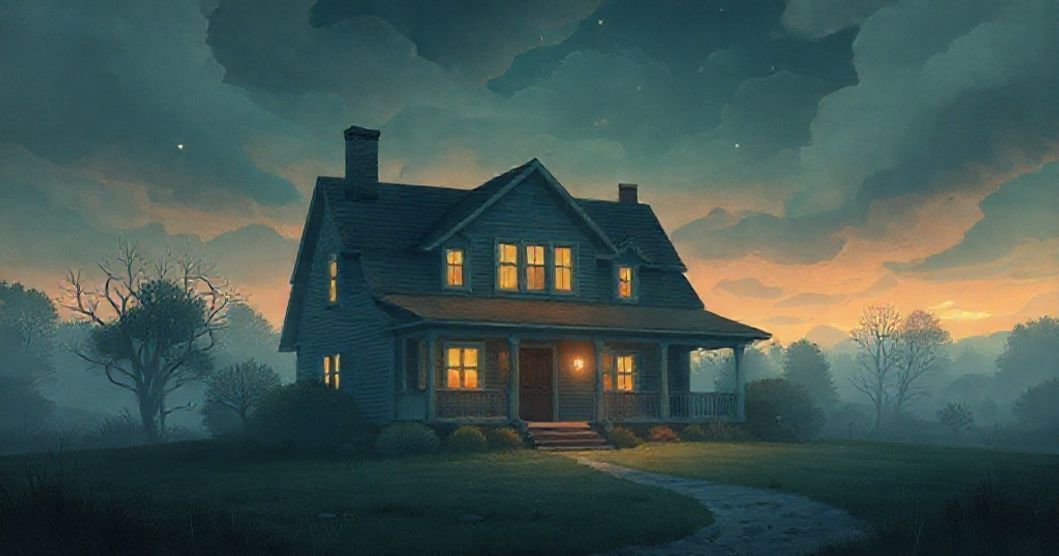Part 1: Dream Presentation
Dreams often serve as portals to our most cherished memories, especially when grief lingers like an unspoken song. This recurring dream narrative offers a window into a landscape both familiar and transcendent, revealing how the unconscious mind processes loss through the lens of childhood home.
Dreams have always been a language I’ve understood intuitively, their vivid scenes lingering like half-remembered poetry in my mind. For years, I’ve been haunted by recurring dreams set in a house that exists only in memory—the home of my late grandmother, nestled in a quiet province where time seemed to stretch infinitely. I was born in the early 2000s, raised on a diet of early technology and endless outdoor adventures, and that house was the perfect intersection of these worlds: dimly lit rooms where summer light always poured through dusty windows, the smell of cinnamon and old books, and the backyard where computer games paused mid-level to chase fireflies, movies played under twinkling string lights, and cousins and I raced bikes along sun-dappled paths. The pool, always cool and chlorinated, reflected a sky that never changed, and the treehouse we built together swayed gently as if frozen in a moment of perfect childhood.
That house became a casualty of loss in 2016 when my grandmother passed suddenly. Since 2018, though, these dreams have intensified, appearing 2-3 times weekly. Even when other elements shift—current life stressors, unmet desires, or fleeting anxieties—the stage remains fixed in that province home. The dream is never negative; it’s a strange, almost sacred space where time warps and reality bends. I feel as though I’ve stepped into a different dimension, where the proportions of the world have shifted—doors that once led to the kitchen now open onto endless fields, and the pool, once a place of laughter, now glimmers with an otherworldly light.
Want a More Personalized Interpretation?
Get your own AI-powered dream analysis tailored specifically to your dream
🔮Try Dream Analysis FreeThere’s an uncanny stillness beneath the familiarity, a sense that I’m both present and absent, as if I’ve died and entered a liminal space between worlds. The grief is palpable but not sorrowful; it’s a quiet longing, a recognition that something essential has been left behind. I’ve always known logically that these dreams reflect my grief and nostalgia for childhood safety, but there’s a deeper, spiritual undercurrent—a feeling that this house isn’t just a memory, but a threshold between life and something else entirely. I’m drawn to understand not just the obvious layers of mourning, but this strange, almost magical quality that makes the house feel like a portal rather than a relic of the past.
Part 2: Clinical Analysis
Symbolic Landscape: The Grandmother’s House as a Container of Identity
The grandmother’s house functions as a powerful symbol of emotional safety and identity formation. In dreamwork, recurring locations often represent core aspects of the self—places where we felt most authentic and connected to others. Here, the house embodies the dreamer’s childhood self: a time of uncomplicated joy, freedom, and connection to family. The summer setting (constant warmth, light, and activity) reinforces the idea of eternal childhood—a period of life that feels untouchable in its safety and simplicity.
The specific elements—the pool, treehouse, and outdoor activities—are not mere details but symbolic anchors. The pool, with its reflective surface, suggests a place of self-discovery and emotional depth, while the treehouse represents a private, elevated perspective on life—a space where the dreamer could observe and participate in both family life and nature. These elements collectively create a
